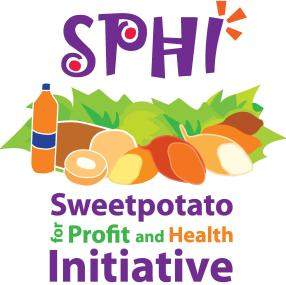<!–NAIROBI, KENYA: JUNE 1, 2015 – Sweetpotato Breeders from 12 African countries will meet in Colline Hotel, Mukono, Uganda between June 2-5 2015 for the this 14th Annual Sweetpotato Breeders’ Meeting.–>
In this second meeting to be held in Uganda, the Sweetpotato Speed Breeders will discuss progress and challenges faced in improving sweetpotato breeds. The meeting will be officially opened by the Director General of the National Agricultural Research Organization (NARO), Dr. Ambrose Agona. The event features 20 plenary presentations and a field trip to Namulonge field site, where participants will engage in an on-farm trail field practical.
This 14th annual meeting is jointly organized by the International Potato Centre (CIP) and North Carolina State University as part of the Swetpotato Action for Security and Health in Africa (SASHA) project and the Genomic Tools for Sweetpotato Improvement (GT4SP) Project activities. It also invites national program sweetpotato breeders supported by the Alliance for a Green Revolution in Africa (AGRA).
Sweetpotato is the third most important food crop in East Africa in terms of production and the fourth most important in Southern Africa. Sweetpotato is also an important source of income for small scale farmers through sale of storage roots, vines and processed products in rural and urban markets, and for animal feed. As in other parts of SSA, sweetpotato in Uganda is predominantly grown by poor smallholder farmers, especially women. In 2009, the Sweetpotato for Profit and Health Initiative was launched in Uganda by CIP and over 26 partners with the ambitious goal of improving the lives of 10 million African households by 2020 through the diversified use of improved sweetpotato varieties.
Robert Mwanga, CIP’s regional sweetpotato breeder for East and Central Africa, noted the great progress being made by the regions breeders: “Already since the launch of the Sweetpotato for Profit and Health Initiative in 2009, nine SSA countries have released 46 new sweetpotato varieties, 37 of which are orange-fleshed.” For a catalogue with details on each, refer to www.sweetpotatoknolwedge.org.
However, sweetpotato production faces many challenges, such as devastating sweetpotato weevils, virus infections and the ravages of long dry spells. There is a lack of reliable markets for sweetpotato in many areas where sweetpotato is produced, and a growing range of consumer preferences challenges breeders to produce varieties that have specific qualities as well as being resistant to diseases and other environmental constraints. Sweetpotato breeders in Africa therefore still have a lot to do to address these challenges.
This meeting marks the first time the Sweetpotato Speed Breeders will be joined by participants from the new Sweetpotato Genomic Tools for Sweetpotato Improvement Project. The genomics team has come at the right time to develop genomic tools to solve some of these major bottlenecks and to accelerate sweetpotato breeding.
Speaking about the breeding work done by the Sweetpotato Speed Breeders, the Dr. Ambrose Agona, the Director General of NARO says, “The breeding component, of which you are all part, includes developing efficient population improvement programs at a sub‐regional level in SSA as well as participatory varietal selection at the national level. This approach enables rapid ongoing development of new varieties to contribute to improved farmer incomes and to deliver nutritional benefits to consumers, especially women and children.”
For more information contact:
Robert Mwanga: R.Mwanga@cgiar.org
NOTES TO MEDIA
This 14th annual meeting is jointly organized by the International Potato Centre (CIP) as part of the Swetpotato Action for Security and Health in Africa (SASHA) project, the Genomic Tools for Sweetpotato Improvement (GT4SP) Project activity, and also invites Alliance for a Green Revolution in Africa (AGRA) funded national program sweetpotato breeders. Besides other activities, the GT4SP project will be involved in training of the sub-Saharan Africa sweetpotato breeding community in genomics and marker-assisted breeding (MAB) in collaboration with the SASHA Project, both funded by the Bill and Melinda Gates Foundation.
The Sweetpotato for Profit and Health Initiative is a ten-year multi-donor, multi-partner effort led by the International Potato Center that seeks to reduce child malnutrition and improve smallholder incomes through the effective production and diversified use of sweetpotato. The SPHI is expected to improve the lives of 10 million Africa n households by 2020 in 17 target countries.
The International Potato Center (known by its Spanish acronym CIP) is a research-for-development organization with a focus on potato, sweetpotato and Andean roots and tubers. CIP is dedicated to delivering sustainable science-based solutions to the pressing world issues of hunger, poverty, gender equity, climate change, and the preservation of our Earth’s fragile biodiversity and natural resources.
CGIAR is a global agricultural research partnership for a food secure future. Its science is carried out by the 15 research centers who are members of the CGIAR Consortium in collaboration with hundreds of partner organizations. http://www.cgiar.org/

